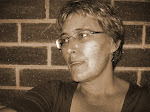Blog is the shortening of `
web logs` (Wise Geek, 2003-2009). In
essence, a blog is the digital version of the old
fashioned hand written journal or diary. The old fashioned part I understand, the digital version has me pondering some questions, which I will leave to the end.
Blogs are used by all types of people for a multitude of reasons, some wish to record their life`s story, some wish to impart their knowledge and some have no idea what they are doing.
Within education I can see the use of blogs as a useful tool,
similar to the use of blogs in this course I can see how they would be relevant to students and their learning. Students today are digitally connected to each other. Blogs I see can be used to further their education by using digital connections, Siemens (2004) refers to this networking as
connectivism, he further goes on to suggest that this model of learning is
essential to the students today and in the future. Engagement in their learning is another model these student require, meaning they need to be physically and mentally involved with what they are learning, gone are the days of classrooms of children who sit listen to teachers with limited involvement except to write down what they are told to.
So how do I see Blogs being utilised in future learning experiences I prepare for students, one idea I have thought of is swapping cooking recipes and techniques.
Questions:
1. How many blogs are there in the world?
2. What happens to them when they are forgotten?
Dominique
References:
Siemens, G. (2004).
Connectivism: a learning theory for the digital age. Retrieved July 24, 2009, from
http://www.elearnspace.org/Articles/connectivism.htmWise Geek, (2003-2009). What are blogs. Retrieved July 24, 2009, from
http://www.wisegeek.com/what-are-blogs.htm
 Image courtesy of http://www.shoutmeloud.com/google-celebrating-earth-day-with-new-logo.html
Image courtesy of http://www.shoutmeloud.com/google-celebrating-earth-day-with-new-logo.html
